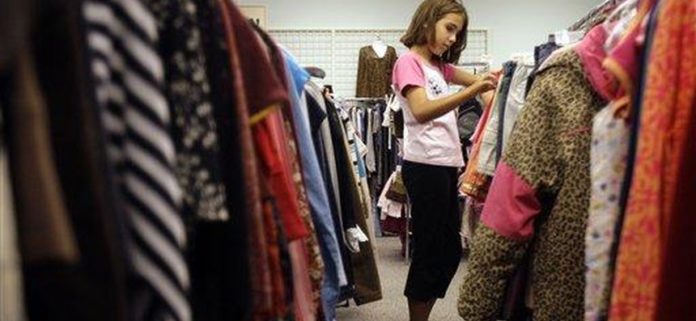It is a well-established and mutually profitable retail market to sell and buy second-hand clothes. People sell clothing they don’t need or want to buy in order to make some extra cash. Buy used clothes to help your budget. Thrift shops sell used clothes at a fraction of the cost than new. This helps raise funds for hospitals and other welfare institutions. It also benefits low-income customers. Thrift shopping is a great way for young adults to find decent clothes and ironically, also wear looks from the past. Fashion aficionados spend hours searching for gently used clothes on the internet, whether they are thrift shops, ThredUp or other online marketplaces.
It’s fine to sell second-hand clothing. Everybody involved in selling and buying second-hand clothing has a role and a budget. Millions of people have access to the marketplace for help, profit, fun, and other benefits. Although the buying and selling used clothes isn’t broken, there are experts who can fix it.
I reported a few weeks back that Brussels’ busybodies had taken the decision to micromanage the apparel sector as part of the latest round of the “Green New Deal” increased regulation.
The EC published the “EU Strategy for Sustainable and Circular Textiles” on Wednesday as part of the Green New Deal. It is a framework for bending textile and apparel industries to their will, by completely retooling them within the next eight-years. …
According to the plan, “Increased durability will allow consumers to wear clothing for longer, and at the same support circular business models like reuse, rental and repair and take-back services and secondary retail, in order to create cost-saving opportunities for citizens.”
It is amazing to see what a “climate crisis”, if it can be justified. You can see that the Forces of Light are deconstructing second-hand clothing markets for their own benefit. As with all “green” initiatives, a thriving industry will be taken away from its owners and managers and handed to the corporate counterparts of the bureaucrats who devised the reason for doing so.
Retail Dive reports that the secondhand market will grow 10% to 15% in the next decade according to McKinsey and Company. ThredUp estimates it at $77 billion within four years.
Apparel giants are embracing the opportunity and exploring different business models to resell their products. They also try out new business models that “add customer value” (aka cost) and increase the deal’s value through expensive marketing and middlemen. Target is one of the partners with ThredUp, a resale company. ThredUp offers “Resale as a Service (RaaS),” and Target has partnered before. Retail Dive reports that Target’s “new pilot program” offers about 400,000 children’s and women’s items from Target’s brands, as well as national and premium brands curated by ThredUp.
ThredUp currently serves 41 brands through its RaaS model, including Eileen Fisher and lululemon.
Others are also reselling their own products. Wrangler sells vintage and pre-loved pieces on its own website, but the prices are high.
The apparel industry will likely shift to a similar re-use model to that of the auto industry. People will purchase, wear, trade in, or resell their clothing, bags, and shoes. Pre-owned items are available for those with limited budgets. It will also be possible to rent clothing. This is all part of the millennial mindset which is less concerned about owning anything, including houses, cars and clothes.
Because they have gone through the woke education system, which teaches such behavior “reduce their carbon footprint,” young elite shoppers are more inclined to view second-hand shopping as a virtue.
All these “reborn” items must come from somewhere. Every coat, every pair of shoes, and every prom dress that ends up on Big Fashion’s racks, at a higher price than in thrift shops, is one less item for someone in need. Don’t forget about the people of poor countries who rely on donations from Goodwill.
The green goody-two shoes will be congratulated for finding second-hand clothing. However, they will also make a lot of greenbacks pricing out those who depend on the market. Nice.










